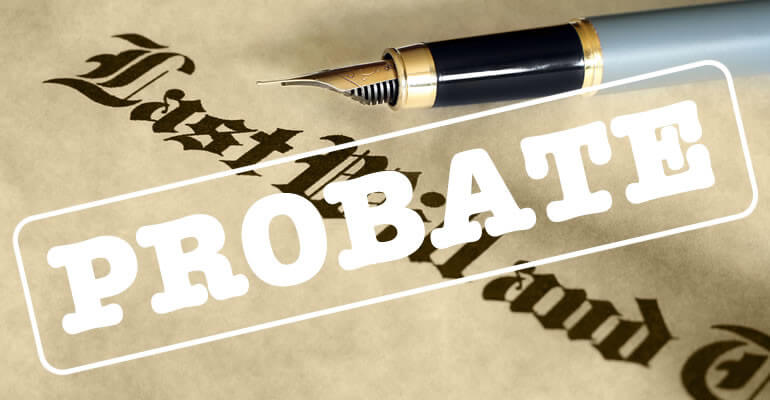Probate is a legal process many people dread, and it becomes even more complex when investment properties are involved. In Texas, the probate process is designed to ensure that the estate of a deceased person is properly distributed to heirs and designated beneficiaries while ensuring that any debts owed by the deceased are paid off. Investment properties add layers of complexity due to their nature as income-generating assets, and managing and distributing these assets can be particularly challenging. This comprehensive guide will give you a detailed understanding of how to navigate probate for investment properties in Texas, helping you manage this intricate process with greater ease and confidence.
Understanding Probate and Investment Properties
Probate Basics
Probate is the court-supervised process of authenticating a last will and testament if the deceased made one. This process involves several critical steps, including:
- Locating and determining the value of the decedent’s assets
- Paying the decedent’s final bills and taxes
- Distributing the remaining estate to the rightful beneficiaries
In Texas, the probate process can vary significantly depending on whether the deceased had a will (testate) or did not have a will (intestate). Understanding these distinctions is crucial for executors and administrators.
Investment Properties Defined
Investment properties are real estate assets purchased with the intent to earn a return on investment (ROI). This return can come through rental income, future resale, or both. These properties can include:
- Residential rentals (single-family homes, apartments)
- Commercial properties (office buildings, retail spaces)
- Land held for future development

The probate process for these properties is more intricate due to their income-generating nature and the potential legal and financial entanglements that come with them.
The Probate Process for Investment Properties in Texas
Step 1: Determine if Probate is Necessary
Not all properties need to go through probate. Some assets can bypass this process through mechanisms such as:
- Living Trusts: Properties held in a living trust.
- Joint Ownership with Rights of Survivorship: If the property is co-owned, the surviving owner typically assumes full ownership.
- Transfer-on-Death Deeds: Texas allows for transfer-on-death deeds, which let property owners transfer real estate without probate.
Step 2: Filing for Probate
If probate is necessary, the first step is to apply. The process involves:
- Applying to probate the will and for the issuance of letters testamentary (if there is a will).
- Applying for letters of administration (if there is no will).
Step 3: Validate the Will
The court will review and validate the will. This step involves:
- Proving the will is legally valid and meets all requirements.
- If no will exists, the court will determine the heirs.
Step 4: Inventory and Appraisal
The executor or administrator must compile a detailed inventory of the decedent’s assets. This involves:
- Listing all assets and liabilities.
- Obtaining appraisals to determine the fair market value of the properties.
- Submitting the inventory and appraisals to the court.
Step 5: Notification and Debt Settlement
Creditors must be notified of the death and allowed to make claims against the estate. This step includes:
- Publishing a notice to creditors in a local newspaper.
- Directly notifying known creditors.
- Paying debts and property taxes for the investment properties.
Step 6: Management of Investment Properties

During probate, the investment properties must be effectively managed. Responsibilities include:
- Maintaining the properties and ensuring they do not fall into disrepair.
- Collecting rents from tenants.
- Making decisions about whether to sell, lease, or retain the properties.
Step 7: Distribution of Assets
After settling all debts and taxes, the remaining assets are distributed to the beneficiaries.
Key Challenges in Probate for Investment Properties
Managing probate for investment properties can present several challenges, each requiring careful consideration and action.
Legal and Financial Complexities
Investment properties often come with legal and financial complexities such as:
- Existing Leases: If the property is rented, existing leases need to be honored or renegotiated.
- Property Management Contracts: Contracts with property managers must be reviewed and possibly renegotiated.
- Disputes Among Heirs: Heirs may have conflicting interests regarding the properties.
Navigating these issues requires a thorough understanding of Texas probate law and possibly the assistance of legal and financial professionals.
Maintaining Property Value
Ensuring the investment properties maintain their value during the probate process is crucial. This involves:
- Continued Property Management: Keeping up with maintenance and management to avoid property value depreciation.
- Tenant Relations: Managing relationships with existing tenants to ensure continuity of rental income.
- Market Fluctuations: Being aware of and responsive to market conditions to make informed decisions about property sales or retention.
Tax Implications
Probate can trigger various tax implications, including:
- Property Taxes: Ensuring property taxes are paid to avoid penalties and liens.
- Federal Estate Taxes: Depending on the value of the estate, federal estate taxes may be due.
- Capital Gains Taxes: If properties are sold during probate, capital gains taxes may apply.
Properly managing these tax obligations requires careful planning and possibly the assistance of a tax advisor.
Strategies for Simplifying Probate for Investment Properties
Several strategies can simplify the probate process for investment properties, reducing stress and complexity.
Pre-Planning and Estate Planning Tools
One of the most effective strategies to simplify probate is through pre-planning. Utilizing estate planning tools can help bypass probate and streamline the transfer of investment properties. These tools include:
- Living Trusts: Placing properties in a living trust can bypass probate entirely.
- Transfer-on-Death Deeds: Allows property owners to designate beneficiaries who will receive the property without probate.
- Joint Ownership: Titling properties with rights of survivorship ensures they automatically transfer to the co-owner upon death.
Professional Assistance
Hiring professionals can significantly ease the probate process. Consider engaging:
- Probate Attorneys: To navigate legal complexities and ensure compliance with Texas probate laws.
- Real Estate Agents: To manage and sell investment properties if needed.
- Financial Advisors: To provide guidance on managing the estate’s finances and tax obligations.
Clear Communication
Maintaining clear and open communication with all parties involved can prevent misunderstandings and disputes. This includes:
- Heirs and Beneficiaries: Keeping them informed about the probate process, timelines, and decisions related to the investment properties.
- Creditors: Ensuring all claims are addressed and settled.
- Tenants: Keeping tenants informed about their rights and any changes to property management.
Common Pitfalls and How to Avoid Them
Probate can be fraught with potential pitfalls, especially when investment properties are involved. Here are some common issues and strategies to avoid them:
1. Underestimating the Time and Effort Required
Probate can be time-consuming and labor-intensive. Executors should:
- Prepare for a potentially lengthy process.
- Stay organized and keep detailed records of all transactions and communications.
- Seek professional assistance when necessary.
2. Failing to Properly Value and Manage Properties
Accurate valuation and effective management are crucial. Executors should:
- Hire professional appraisers to determine the fair market value of properties.
- Engage property management services if needed to maintain property value.
- Regularly review property conditions and market trends.
3. Ignoring Tax Implications

Tax obligations can significantly impact the estate. Executors should:
- Consult with tax advisors to understand potential tax liabilities.
- Ensure all property and estate taxes are paid on time.
- Consider tax implications of property sales or transfers.
4. Not Communicating Clearly with Heirs and Beneficiaries
Poor communication can lead to disputes. Executors should:
- Maintain open and transparent communication with all stakeholders.
- Provide regular updates on the probate process and decisions made.
- Address any concerns or questions from heirs promptly.
5. Mismanaging Estate Funds
Proper financial management is essential. Executors should:
- Open a separate estate bank account for all transactions.
- Keep detailed records of all income and expenses related to the estate.
- Avoid commingling personal funds with estate funds.
Conclusion: Navigating the Path Ahead
Navigating probate for investment properties in Texas requires a blend of diligence, legal acumen, and financial savvy. By understanding the probate process, anticipating challenges, and employing effective strategies, executors and administrators can successfully manage and distribute investment properties, honoring the deceased’s wishes and preserving the estate’s value.
Remember, probate is a journey, not a sprint. Take the time to seek professional guidance, communicate clearly with all stakeholders, and carefully manage the investment properties. With the right approach, you can navigate the probate process with confidence and competence, ensuring a fair and efficient distribution of assets.








